The first clause of Article II Section 2 of the Constitution provides: “The President … shall have Power to grant Reprieves and Pardons for Offences against the United States, except in Cases of Impeachment.”
Settled law: The scope of the presidential pardon
With President Trump’s history of controversial pardon decisions and with expectations that numbers of additional pardons will issue before his term ends, the presidential power to pardon is attracting unprecedented attention. The exact dimensions of this power are for the Supreme Court to determine, and Court majorities have in recent years often been unshackled by precedent in resolving politically fraught issues. However, certain aspects of the presidential pardoning power are so well-established that it is unlikely that any Court, conservative or liberal, will revisit them. For starters the power is extremely broad; it is vested by the Constitution in the president, and there is little that Congress can do to constrain it short of impeaching the president if they believe its exercise improper.
Although the Constitution speaks of “reprieves” and “pardons,” these words encompass more than what they might seem to entail. “Pardons,” for example, encompass amnesties and can be accorded people whose identities the president does not know and may be unable to determine. The first such pardon was issued in 1795 by George Washington to people who participated in the Pennsylvania Whiskey Rebellion, with Jimmy Carter’s pardon of Vietnam-era draft evaders being a more recent example. Pardons may also be conditioned on a person accepting certain restrictions on future behavior, including submitting to punishments not otherwise provided by law. Pardons need not follow convictions but can be issued before or during a criminal prosecution. The rationale for so-called “pre-emptive” pardons is that there is no point in requiring a person to live in fear of conviction or to go through a trial if the offense of which he is or might be accused would ultimately be pardoned. Pre-emptive pardons do, not, however apply to offenses not yet committed. The president can tell a thief not to worry about being convicted for the crime he has committed yesterday because he has pardoned him. But a pardon today cannot forgive a crime the thief commits tomorrow.
Settled law: Limitations of the presidential pardon
Although the president’s power is broad, it is not without accepted limitations. Perhaps the most important is that the president can only pardon federal offenses; he cannot interfere with state prosecutions. Also, the pardoning power only extends to criminal offenses; it does not preclude civil actions. Thus, in one case, despite a strong separation of powers argument to the contrary, the Supreme Court held that the president could pardon a person jailed for criminal contempt of court. It noted, however, that had the charges been for civil contempt, an appeal to the president’s pardoning power would have been unavailing. In addition, except perhaps where a pardon is explicitly based on innocence, a pardon doesn’t erase a conviction. It simply erases the penalties and at least some disabilities attendant on a conviction. Despite being pardoned a person would, for example, have to answer “yes” when asked if he had ever been convicted of a crime, and in a state where convicted felons are denied the vote, a presidential pardon will not restore that right. Where a person has paid a monetary penalty or forfeited property, the consequences of a pardon depend in part on when it was issued. If a monetary fine or contraband cash has been transferred to the Treasury, a pardon conveys no right to a refund, nor does the person pardoned have a right to reacquire property or the equivalent in cash from a legitimate purchaser of his seized assets or from an informant who was rewarded with cash taken from the pardoned person before he was pardoned. If, however, a person is pardoned before title to money or property has fully vested in a person or entity, the money will be refunded unless the conditions of the pardon preclude this.
Whenever it issues, a pardon will not interfere with any rights a third party has to recover damages for another’s criminal behavior even if that behavior has been forgiven by a pardon. Also, a pardon cannot be forced on a person who declines to accept it, either explicitly by acknowledging it or implicitly by taking advantage of the pardon. The right to reject a pardon is justified by the prevailing view that accepting a pardon, except where the pardon is based on innocence, is a tacit admission of guilt. Hence, shame or other reasons for rejecting a pardon mean that a refusal to accept a pardon must be honored. This precluded the government, during Woodrow Wilson’s presidency, from abrogating a witness’s privilege against self-incrimination by issuing a pardon that forgave the witness for any crime relating to the subject of his testimony. The same rule does not, however, apply to sentence commutations which are seen as inherent in the power to pardon. Even if a person doesn’t want to be released from prison until his full sentence has been served, the prisoner must leave if his sentence has been commuted.
The impeachment exclusion
The only explicit constitutional limitation on the president’s pardon power is that the president cannot issue a pardon to preclude or affect the disabilities that attach to an impeachment. If, as has happened a number of times in our history, a federal judge has been impeached or removed from office, the president cannot reverse the action. It seems similarly clear that even if a president can pardon himself for crimes he has committed (an issue I discuss below) his pardon power does not extend to forgiving crimes and misdemeanors that the House might charge in a bill of impeachment. Nor can a pardon forestall a Senate trial on a House-passed impeachment. It has been suggested that the impeachment exception also precludes presidential pardons for those who have aided the president in activities that have given or threaten to give rise to a presidential impeachment. I think this extension of the impeachment exception is good policy, but I find it legally questionable.
One of the most disturbing aspects of the president’s broad power to pardon is that it apparently empowers the president to conspire with others to commit crimes that personally profit him or serve to maintain him illegally in office, since he can assure those who aid in these endeavors that if their perfidy is discovered, he will pardon them for the crimes they have committed. Surely, one might think, the framers did not intend for the pardon power to extend this far. It appears, however, that the drafters of the pardon clause recognized this danger, but did not act to prevent it. The issue was raised during the discussion of the pardon power at the constitutional convention when it was proposed that the president’s power to pardon be restricted not just for impeachments but also when treason was charged. George Mason, in language that seems to anticipate what some think is true of some Trump pardons, argued in favor of the addition: “The President of the United States has the unrestricted power of granting pardons for treason; which may sometimes be exercised to screen from punishment those whom he had secretly instigated to commit the crime and thereby prevent the discovery of his own guilt.” George Iredell argued against Mason’s position as unduly weakening the executive when the chance of a president committing treason against his country was “very slight” and suggested that no man honored by his country by being elected president would risk “the damnation of his fame to all future ages.” Apparently persuaded by Iredell, the drafting committee ignored Mason’s concerns. Alexander Hamilton also supported the exclusion of treason. He thought it important to give the president discretion, if the time seemed ripe, to pardon those in treasonous revolt as an incentive to encourage the laying down of arms. Lincoln attempted to use pardons to this end during the Civil War. Contrary to Hamilton’s optimistic view of a pardon’s power, it did not “restore the tranquility of the commonwealth.”
Unsettled issue: Need a pardon be specific?
Pardons, except for amnesties, are typically given after a person has been convicted of a crime, and they specifically reference that crime. In this respect, President Trump’s pardons of Scooter Libby, Paul Manafort, George Papadopoulos and Roger Stone are typical. After asserting that the recipient is given a “Full and Unconditional Pardon,” they go on to specify the statutes each was charged with violating and describe in detail the punishments given. Their pardons extend to the named crimes and no other. The pardon given to Michael Flynn is somewhat different. After referencing the charge of lying to federal investigators for which Flynn was convicted, the president goes on to pardon Flynn not just for this crime but also for “any and all possible offenses” within the jurisdiction of the Special Counsel’s investigating authority or relating in any manner to the Special Counsel’s investigation [of Russia’s attempted interference in the 2016 presidential election and links to the Trump campaign.]
If President Trump decides to issue pre-emptive pardons to relatives and associates like Ivanka Trump, Donald Trump, Jr., Jared Kushner and Rudy Giuliani, one would expect them to be broader still, extending perhaps to any federal offense that the recipient may have committed before or while Trump was president. There is precedent for such a broad, undefined pardon. Gerald Ford’s pardon of Nixon encompassed “all offenses against the United States” which Nixon had or may have committed during his term in office. The Nixon pardon is not, however, legal precedent, for it was never tested in court. Even if the special circumstances surrounding Nixon’s pardon would have led the Supreme Court to uphold it had Nixon later been charged with a covered crime, it is not clear that a similarly broad and undefined pardon would protect beneficiaries of a Trump attempt at mercy. Presidents, even past presidents, are treated differently than ordinary citizens when it comes to their liability for actions they took while in office. Thus, in a civil case filed after his term expired, Nixon was held to be immune from a suit for damages while other government officials involved in the alleged violation were given only a qualified immunity.
There are several reasons to expect that a broad pre-emptive pardon would be held invalid. A pardon which doesn’t specify in sufficient detail the offenses pardoned conflicts with the notion that accepting a pardon is an implicit admission of guilt. It is hard to say that a person who has accepted a pardon for any offense he or she may have committed has admitted guilt to an offense when we don’t know what wrongful behavior has been acknowledged. Moreover, judicial language justifying pre-emptive pardons appears to have pardons for specific offenses in mind. In addition, it is unlikely that the framers would have vested in the president the power to issue pardons for offenses of which he was unaware. Amnesties which can benefit people whose identities are unknown must nevertheless specify the offenses that are forgiven. Nevertheless, the question of how specifically a pardon must detail the pardoned crimes remains open, and the Nixon pardon, which has been generally accepted as legitimate, may figure importantly in any judicial discussion.
Unsettled issue: Can the president pardon himself?
No federal court has addressed this issue, although Nixon’s Office of Legal Counsel did. In a brief memorandum Mary Lawton, the acting assistant attorney general, opined that the president could not pardon himself because of “the fundamental rule that no one may be a judge in his own case.” Although Lawton’s opinion has no precedential value and except for the cited sentence is devoid of legal analysis, her conclusion is most likely correct. The president’s pardon power is modeled on the English king’s power to pardon offenses against the crown. This power did not encompass self-pardons because the king could not be tried in the royal courts. Thus, it is not surprising that the possibility of self-pardons was not discussed when the Constitution’s pardon clause was drafted. The possibility was probably not even contemplated by the framers. However, a denial of this possibility appears implicit in Iredell’s argument against treating treason like impeachment and excepting it from the president’s pardoning power. After asserting that the chance that a president would commit treason against his country was very slight, Iredell said “Such a thing [presidential treason] is, however, possible, and accordingly he is not exempt from a trial.” If the president could pardon himself, he would be exempt from a trial. In addition, both at the Constitutional Convention and in numerous Supreme Court opinions pardons are characterized as acts of grace, justified because they allow justice to be tempered with mercy. Self-pardons do not fit these descriptions.
The downside of pardons for Trump
The broader the pardon, the narrower the Fifth Amendment protection.
In the 1915 case of Burdick v. U.S., George Burdick refused a pre-emptive pardon issued by Woodrow Wilson because accepting it would have meant that he could not claim his Fifth Amendment privilege when called to give testimony relating to the pardoned crime before a grand jury. Herein lies the downside for President Trump in any pardons he might grant. Should Congress or the Justice Department seek to determine whether the president or any of his associates acted criminally before or during Trump’s term as president, pardoned individuals would be limited in their ability to dodge questions by claiming their Fifth Amendment privilege. The broader the pardon, the narrower the Fifth Amendment protection. Roger Stone, for example, after being pardoned for the crime of impeding a congressional investigation could not invoke the Fifth Amendment to avoid answering narrowly focused questions regarding this illegal activity. His privilege would, however, remain with respect to other possible crimes, and he might even be able avoid answering questions about the lies he told Congress if his answers might help prosecutors prove him guilty of different crimes. By contrast, the terms of Michael Flynn’s pardon render him unable to claim the Fifth Amendment in any proceedings exploring Russia’s involvement in the 2016 election. If Trump issued similarly broad or broader pardons to members of his family or closest allies, they too could be required to tell more of what they did and know.
Although truthful testimony might shame a witness or open Trump or others up to suits for civil damages, these considerations cannot support Fifth Amendment claims. Also, with criminal prosecutions off the table, Congress or the Justice Department, perhaps acting through special counsel, might be more rather than less willing to explore the possible crimes and bad acts of Trump and his associates. Even if illegal behavior were uncovered, the DOJ would not be in a situation where it felt it had to bring charges that might unacceptably exacerbate political divisions or result in trials where juries did not convict. To a degree determined by the scope of Trump’s pardons, recipients could be required to flesh out details about crimes for which they had been pardoned, perhaps implicating others whose involvement had gone undetected. If they then lied to avoid shaming themselves or to protect others, they could be tried for that crime.
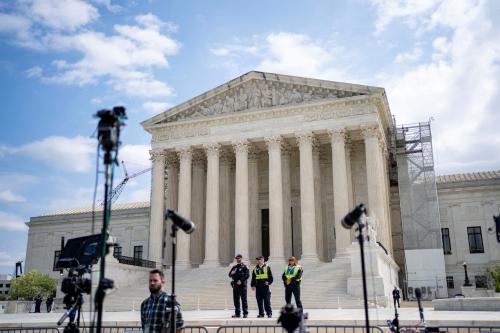
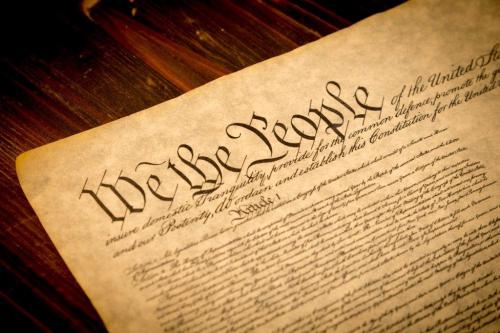
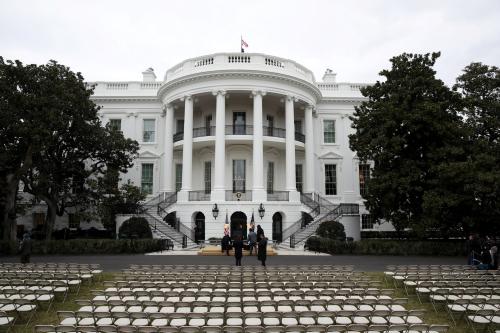
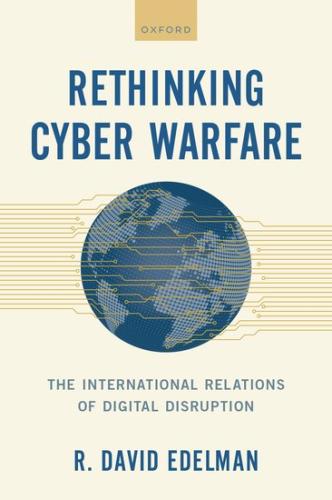



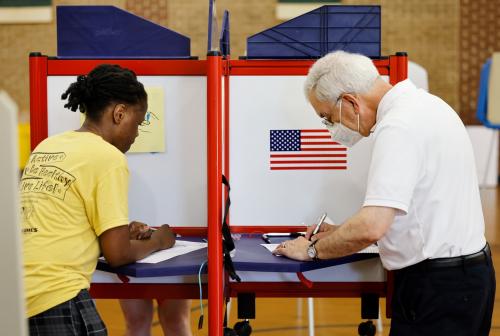
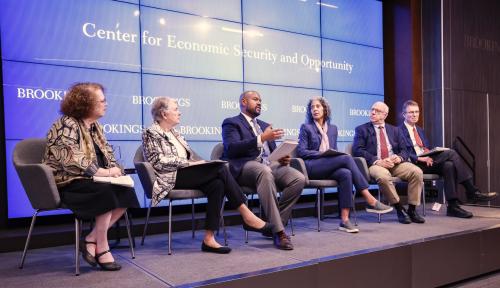
Commentary
Presidential pardons: Settled Law, unsettled issues, and a downside for Trump
January 17, 2021